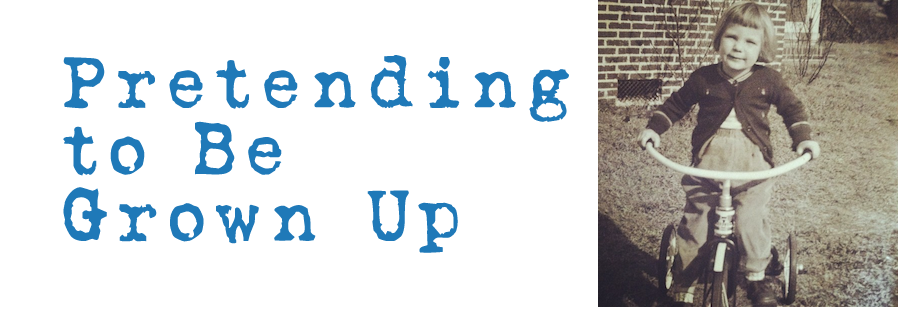As a child, in my eyes Great Aunt Pansy was the rich one in our family. Sometimes when we went to visit my dad's family on the farm in Bowman, South Carolina, we would drop by Aunt Pansy's for a couple hours. Living in the city of Anderson, SC, in a really nice neighborhood, she had a brick house painted white, usually with a new Cadillac parked in her driveway.
Once inside the house, there were luxurious furnishings with the softest carpets on the floors and velvety towels hanging in the bathroom. The house sounded like laughter and always smelled nice, as did my Aunt Pansy. She wore the loveliest clothes my eyes had ever seen: saucy hats atop her head and sumptuous furs across her shoulders. Pansy was a country girl who had grown comfortable in the city. The elegance she had learned never could disguise the real Pansy--funny and down-to-earth, genuine, sprung from humble roots.
Born in 1905 on a farm in Orangeburg County, SC, she was the second daughter of Carrie and Charlie Ayers. The first daughter, born 17 months earlier, was Flossie, my father's mother and my paternal grandmother. These two daughters were the only children of their parents. Flossie went on to live in that same farmhouse and to have nine living children. In contrast, Pansy moved to the city, married twice, had a career. No children.
 |
| This is me, about the same age as Pansy was below. I never realized how much we favored until I saw this picture of her recently. I guess I do look like the Ayers sisters after all. |
.jpeg) |
In the meantime, Pansy was named the manager of the Western Union office in Anderson. She invited two of her sister's grown children to live with her at various times. Once Flossie's first born graduated high school, CF (Charles Fulton) went to live with and work for Pansy, delivering Western Union telegrams. Later she sent him to Clemson College, then procured him a summer job at Carolina Beach, NC, where he met his future wife. His subsequent marriage and World War II changed his course, and he didn't return to college. A disappointment to her, I'm sure.
 |
| My Great Aunt Pansy in her younger days. |
Flossie's third daughter Bonnie also lived with Pansy and attended Anderson College for a semester, where she met and married her husband. Pansy was said to be put off about her not continuing on in college. Still later, after CF had a son, my cousin Butch would visit Pansy for a fun-filled week during the summers, and she would buy him spiffy back-to-school clothes from the downtown J. C. Penney's. With Aunt Pansy's attention, Butch almost felt that he had two grandmothers on his father's side of the family. Butch remembers, "We always went to church on Sunday morning and then went to Clemson House in Clemson for a lunch of she-crab soup, roast beef with mashed potatoes and gravy and real strawberry shortcake for dessert. We would joke around about how could they tell if it was a she-crab or a he-crab. We would laugh and talk; there was never a dull moment around Aunt Pansy." Butch also recalls his family going to lots of Clemson football games with Pansy through the years.
Later in life, Pansy opened her home to a feisty little fleet of Chihauhaus who would nip at the heels of her guests, particularly of children. She dearly loved them. To me, they always looked like puppies, and I could think of nothing I wanted more. Finally, my family got a Chihauhau/Toy Manchester mix from her. We named him Jose, and I considered him my dog.
 |
| Little Jose and little me in Madison, Tennessee, during my best childhood years. |
Some years after Harry and Flossie's husband (my father's father and my paternal grandfather) died, Pansy retired from Western Union and moved into a nice house in Orangeburg. Still later she moved into the farmhouse in Bowman with her sister Flossie and had the farmhouse beautifully remodeled. Then a stroke took her to the nursing home in Orangeburg, where Flossie joined her several years later. She would enjoy keeping up with her beloved Atlanta Braves on radio and TV. Pansy died there in 1993 and is buried beside Harry in Anderson. Her sister Flossie died a year later.
Most of us who remember Pansy remember her with a smile on her face and on our faces. "Her chin would quiver when she was tickled," Sandra recalls. She loved to have a glass of wine in the evenings and is said to have been the life of any party. I regret not knowing her better. As a matter of fact, I'm beginning to feel that same way about many people in my father's family. Independent, fun and funny, quick witted, with a twinkle in her eye, my Great Aunt Pansy is a lady whom I remember with great fondness.








